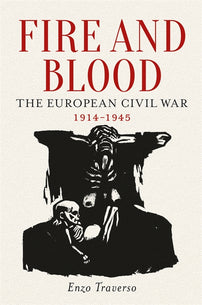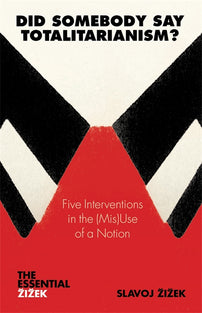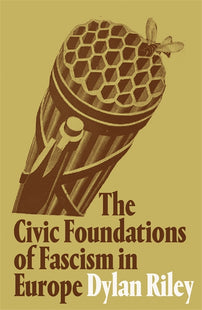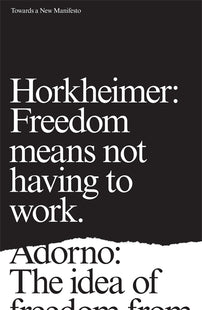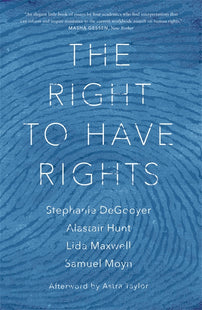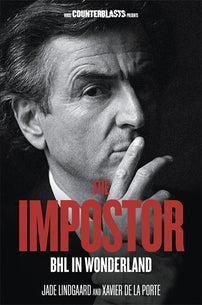Against "Totalitarianism": A Conversation with Enzo Traverso
We must break with “anti-totalitarian” horizon inherited from the neoconservative restoration of the 1980s.

First published in Marginalia.
Thank you for accepting our invite to talk to Marginalia for our inaugural issue on the subject of totalitarianism. As a historian who has written extensively on the subject could you first provide us with an outline of the history of the concept? While rooted in the horrors of 20th century European history the term has been proven particularly enduring most recently being employed in the context of a new anti-communism and anti-Islamism.
During its century-long life, the idea of totalitarianism has passed through different stages, which retrospectively depict a very contested trajectory. In the 1920s, this word was coined by Italian antifascists to denounce the monolithic character of the political regime established by Mussolini. Very quickly, the fascists themselves adopted it, claiming their ambition to build a “total state.” Thus, the term was used by both fascists and antifascists, who gave it either a negative or a positive meaning. In the following decade, the term experienced a large diffusion, with the emergence of the Nazi power in Germany and the advent of Stalinism in the USSR. The concept of totalitarianism was codified in 1939, after the Soviet-Nazi non-aggression pact that suddenly presented Hitler and Stalin as twin dictators. Its golden age, however, was the first step of the Cold War, when it became instrumental in denouncing the USSR as the enemy of the “free world.” Since that moment, totalitarianism fulfilled an apologetic purpose, immunizing the West against any kind of criticism. During the Cold War, all critics of the US foreign policies automatically became accomplices of the “totalitarian enemy.” For a short moment, under McCarthyism, “anti-totalitarianism” almost turned into a totalitarian ideology. Strongly criticized by a scholarship that did not accept being submitted to such ideological imperatives, this concept was progressively dismissed in the 1960s and 1970s. It experienced a spectacular rebirth after the terrorist attacks of September 11, 2001, when it was applied to the emergence of Islamic fundamentalism. Thus, even if its content has changed significantly, “totalitarianism” permanently designates the enemies of the West. This inevitably implies a selective gaze on the violence of the past century: in front of totalitarian crimes — genocides and concentration camps — Western violence was automatically legitimized or eventually reduced to a sequence of “collateral damages.” Of course, there are many theories of totalitarianism, some of them fruitful and interesting, but the “public uses” of this concept have been mostly apologetic.
There have been significant national variations in the credence the term has received. In France, for instance, it seems that until the publication of Solzhenitsyn’s work on the Soviet Gulag in 1973 the language of totalitarianism does not receive much attention. Furthermore, is totalitarianism an explicitly occidental phenomenon or concept?
In the light of its intellectual history, totalitarianism appears as an eminently Western concept, despite its global diffusion. In fact, it also has a geopolitical dimension. In some Mediterranean countries like Italy, Greece, or France, where the communist parties played a hegemonic role in the Resistance movements, the idea of totalitarianism aroused significant suspicion in the postwar years. It was not so easy to depict the political actors who struggled against fascist and Nazi dictatorships as “totalitarian.” As Michael S. Christofferson has convincingly proved, the highly controversial French reception of Solzhenitsyn’s Gulag Archipelago in the early 1970s was instrumental in obstructing the rise of the Union of the Left. In several Western countries, the “totalitarian” debate of the 1970s coincided with the “crisis of Marxism” and allowed the conservative turn of a significant section of the left intelligentsia towards a quite conventional form of classical liberalism, or even of anticommunist conservatism. The so-called French “New Philosophers” were the most visible expression of this intellectual and political change. The “conservative revolution” of the 1980s wore the habits of anti-totalitarianism and “Human Rights.”
In search for the roots of totalitarian ideas, how far back can one go? Karl Popper, for instance, traces a kind of proto-totalitarianism in Plato while Max Horkheimer and Theodor Adorno find its roots in Enlightenment’s fascination with instrumental reason and technology.
I am very skeptical with respect to Popper’s theory of totalitarianism: the philosophical genealogy he sketched in The Open Society and Its Enemies, where he established a kind of lineal evolution from Plato to Hitler, passing through Hegel and Marx, had a very simple goal: depicting both totalitarianism and liberalism as two eternal and timeless categories not belonging to history but rather to humankind itself. Popper’s theory of totalitarianism was the philosophical version of the West immunization strategy, of which we spoke of above. Horkheimer and Adorno’s vision of Nazism put into question the entire trajectory of Western civilization, drawing another lineal path going from Antiquity to the twentieth century. In Dialectic of Enlightenment, they adopted a kind of Hegelian teleology whose outcome was the triumph of the absolute mind as totalitarianism: the shift from emancipatory reason to instrumental rationality. The critical potential of this approach is obvious-particularly when we remember that antifascism viewed National Socialism as a decline of civilization into barbarism and considered the Resistance movement as the revenge of Enlightenment-but it was similarly de-historicized. Furthermore, they viewed totalitarianism as an ineluctable destiny of modernity, adopting a posture of contemplative criticism that avoided any political commitment (from this point of view, one should distinguish them from other Frankfurt School thinkers like Benjamin or Marcuse).
Hannah Arendt’s The Origins of Totalitarianism, first published in 1951 has recently attracted renewed attention. In January of 2017, around the time of President Donald Trump’s inauguration it actually sold out on Amazon. While looking into Nazism and Stalinism, Arendt seeks to understand totalitarianism as a novel form of mobilization and genocidal dictatorship culminating in the system of concentration and death camps. Does her account remain useful in our effort to understand current political phenomena?
When Arendt wrote her book, during and immediately after the Second World War, both National Socialism and Stalinism were political phenomena of the present, not yet historiographical objects. Arendt was not a historian and, from a historical point of view, her book is highly problematic: she does not distinguish very clearly between concentration and extermination camps; she depicts a genealogy of totalitarianism-anti-Semitism, colonialism, total rule — which clearly does not fit the history of Stalinism, etc. Nevertheless, she emphasizes the novelty of totalitarianism in history: the twentieth century experienced a new system of power whose purpose was the destruction of politics itself, i.e. the diversity of human beings. In other words, totalitarianism is an attempt at building a monolithic, homogeneous community in which any form of pluralism and division of the social body is eliminated. According to Arendt, politics is not an ontological category; it is rather the realm of infra, a space of interaction between citizens, very different human beings sharing a common political sphere as equal actors. It seems to me that this definition of totalitarianism as an experience of the destruction of politics deserves to be saved and highlighted. Conceived in this way, totalitarianism, a system of total, overwhelming state power, is also antipodal to communism, a classless and stateless community of free and equal human beings.
It is clear that historical specificity and socio-political contextualization is paramount in any effort to better understand totalitarianism. Would it be possible, however, or would you find it useful to identify some of its most important characteristics? Would, for research purposes at least, an ideal-type be of certain value?
Many scholars have tried to build a totalitarian “ideal-type.” According to Carl Friedrich and Zbigniew Brzezinski, the authors of a very successful theoretical definition in the 1950s, totalitarianism is a correlated system of different elements: the suppression of constitutional rights, the abolition of pluralism and representative democracy, a single-party system, a charismatic leadership, an official ideology, and the concentration camps. The advantage of this ideal-type lies in its capacity to include both fascism and Stalinism. If we adopt Arendt’s definition of totalitarianism as a system of power that destroys politics, however, we should recognize that it can take different forms without crystallizing into “ideal-types.” Thus, totalitarianism should not be reduced to its twentieth century forms. A completely reified world, in which all human and social relationships take a commodity form, in which the market becomes a universal anthropological model and human beings are unable to conceive of their relationships outside of individualism and competition: such a world would be totalitarian. Paradoxically, a new form of neoliberal totalitarianism is coming into being, dressed in anti-totalitarian clothes (market and individualism as symbols of freedom against racial and class collectivism).
The German "conservative revolution" that followed the First World War, which like other conservative movements of the period sought to put a stop to the rising tide of liberalism and communism, ceased to exist after the Second World War. How do you explain the resurgence of a new wave of conservatism and nationalism today alongside a rather militant anti-communism, in Europe and the US at least?
At the beginning of the twentieth century, the German “conservative revolution” merged conservative values — Isaiah Berlin and Zeev Sternhell called it “counter-Enlightenment” — with an authentic cult of modern technology, industry and science. This tendency is over, but the end of the twentieth century revealed a new form of “neo-conservatism” that raised up the market, individualism and capitalism against the communist revolutions and the egalitarian aspirations of the postwar imagination. Insofar as they reject neoliberal globalization, i.e. the contemporary form of totalitarianism, many right-wing movements are certainly conservative but not totalitarian. They are a conservative reaction to contemporary totalitarianism. We should be aware of this when we fight post-fascism, right-wing populism and other forms of radical rights. Just as we cannot struggle against contemporary totalitarianism in the name of nationalism or conservatism, we cannot struggle against post-fascism by building a united front with the defenders of neoliberalism.
Anti-fascism, for a good part of the twentieth century, was identified with the struggle for peace. Increasingly, however, liberal anti-totalitarianism seems prone to portray movements and activism against the rising tide of right extremism as violent, nondialectical, and authoritarian. What is really at stake here? What is the historical value or the political relevance of anti-fascism today?
I don’t identify antifascism with pacifism. At the end of the 1930s, particularly after the Munich conference of 1938, pacifism meant capitulation in the face of fascism and many “pacifists” became collaborationists during the Second World War. After 1941, antifascism was identified with the armed struggle against the Nazi occupation of Europe. Today, the “violent” means of action adopted by movements like Black Lives Matter in the US or the Palestinian Resistance in Gaza and the West Bank are increasingly popular. It seems to me that the opposition to US and Western wars in the Middle East should not be carried on in the name of pacifism, rather in the name of freedom against neocolonial oppression and occupation. Being “pacifist” in Syria does not mean anything. If we consider democracy as a historical conquest rather than a simple institutional structure — a method to organize the power of majority — many countries that experienced fascism in the past should not accept what Jürgen Habermas depicted as an “anti-anti-fascist” conception of democracy.
In 1989 along with the Berlin Wall an entire representation of the world fell. Western liberal democracy appeared to be of universal appeal. Today, hundred years on from the Russian Revolution — often reduced to a criminal parenthesis in 20th century history — and after the revolutionary waves we have seen surging around the world the past few years could we say that its lasting impact on the world may yet to be felt fully?
Rescuing the Russian Revolution means extracting its legacy from the deep layers of a century of anticommunism and Stalinism. This is a work of mourning the defeated revolutions of the twentieth century. This historical defeat explains the features of the new anti-capitalist movements (Occupy Wall Street, los Indignados, Gezi Park, la Nuit Debout) which have appeared in the West as well as the revolutionary wave that spread in the Arab world during the last decade. These movements could not inscribe themselves into any historical continuity and did not claim the legacy of the October Revolution. They were compelled to reinvent themselves. Their freedom and creativity are refreshing, but their ephemeral character is a serious limit. I don’t think they will be able to build solid structures and engaging perspectives without “working through” the communist experience of the past. This also means breaking the “anti-totalitarian” horizon inherited from the neoconservative restoration of the 1980s.
Despina Lalaki is a historical sociologist and teaches at CUNY. Her writing has previously appeared in Al Jazeera, Boston Occupier, and New Politics, among other outlets. A full list of her publications can be found at https://baruch.academia.edu/DespinaLalaki.
[book-strip index="1" style="display"]
